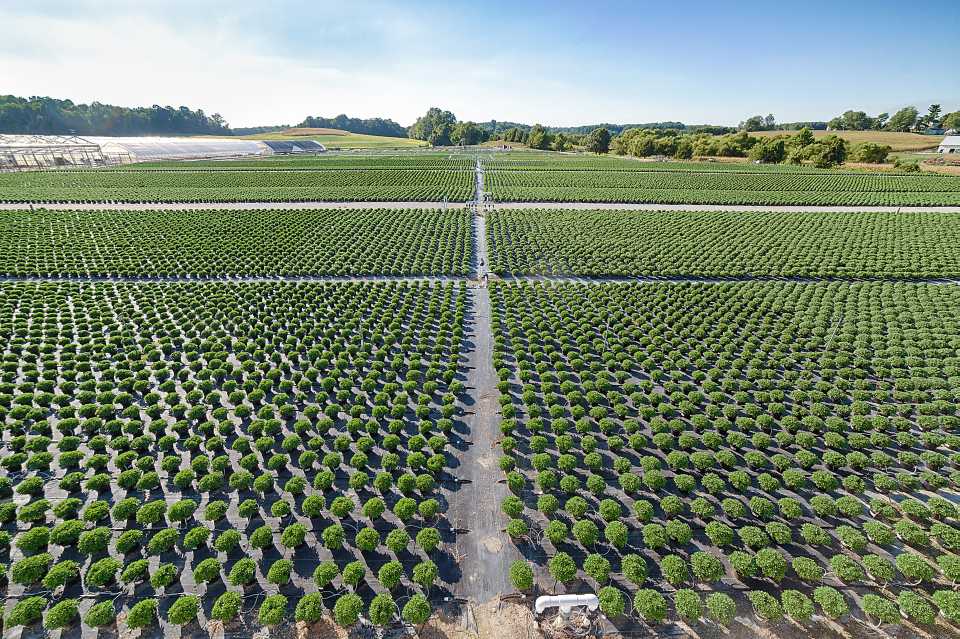Fine-Tuning Greenhouse Contract Growing Keeps Costs In Line At Tidal Creek Growers

Outside fields of 8-inch mums on drip irrigation at Tidal Creek Growers’ Davidsonville location. Photo courtesy of MJLeubecker Photography.
Tidal Creek Growers, No. 98 on Greenhouse Grower’s Top 100 list, started out as a contract business on 2 acres of abandoned greenhouses in Earleville, Md. Over the years, owner Jake Van Wingerden added in his own products, and today, Tidal Creek Growers is 35 percent contract growing and 65 percent direct sales to independent garden centers.
Van Wingerden says contract growing is risky because you never know what you will get from year to year, but there is comfort in knowing that 35 percent of his greenhouses are already sold before spring starts.
The downside, he says, is you get paid less per unit, and you are at the bottom of the food chain.
Van Wingerden speaks from experience. At one point, he says he had a million dollar contract customer that he grew for regularly, until the customer bought his own greenhouse, which forced Van Wingerden to quickly change his business model. He says he has no interest in going back to having all of his eggs in one basket.
During the last few years, Van Wingerden has been narrowing in on the types of products he is willing to grow. His specialty — Wave petunias, specifically the 306 Wave flat.
This year, Tidal Creek grew more than 165,000 flats of 306 Wave products for four different greenhouse operations that service Walmart, Lowe’s and The Home Depot in the Northeast. And Van Wingerden says he is interested in adding more contract customers to his customer list.
“We have tailored our production processes to nail down the 306 Wave program,” he says. “That is pretty much all I am interested in contract growing. It is similar to the Dutch mono-crop model, where they really nail down the quality and get their costs in line.”
As a contract grower, Van Wingerden says you often get what the primary greenhouses don’t want to grow or can’t make money at. To be successful at it, you have to know exactly what it costs you to contract grow something. If you can’t make money at it, you have to say no because of the risk and capital investment involved.
By focusing on the Wave products, which can be challenging to grow, he can solve a problem for growers by taking the product off of their hands instead of waiting for the scraps. And he knows precisely what costs are involved.
“From my perspective, I want to be known as doing a really good job at one or two products,” Van Wingerden says. “That way I can focus on great quality and excellent service.”
Tidal Creek Growers’ 7 Tips For Contract Growing
After 13 years of contract growing, the team at Tidal Creek Growers has it down to a science. Here are seven pieces of advice for your contract business.
1. Remember that you are growing for other growers. You won’t fool anyone, so produce a top-quality crop.
2. If the numbers are big, but the margins are small, you are better doing way less and making more money.
3. Keep a close eye on your inventory and how profitable it is.
4. Narrow in on the types of things you are willing to grow.
5. Explore other revenue streams so your income isn’t dependent solely on contracts.
6. Know exactly what it costs to contract grow a crop.
7. Don’t be afraid to say no to any crop, program or price that doesn’t make you money.
For more on Tidal Creek Growers:
“Smart Business Sense Yields Success At Tidal Creek Growers”










